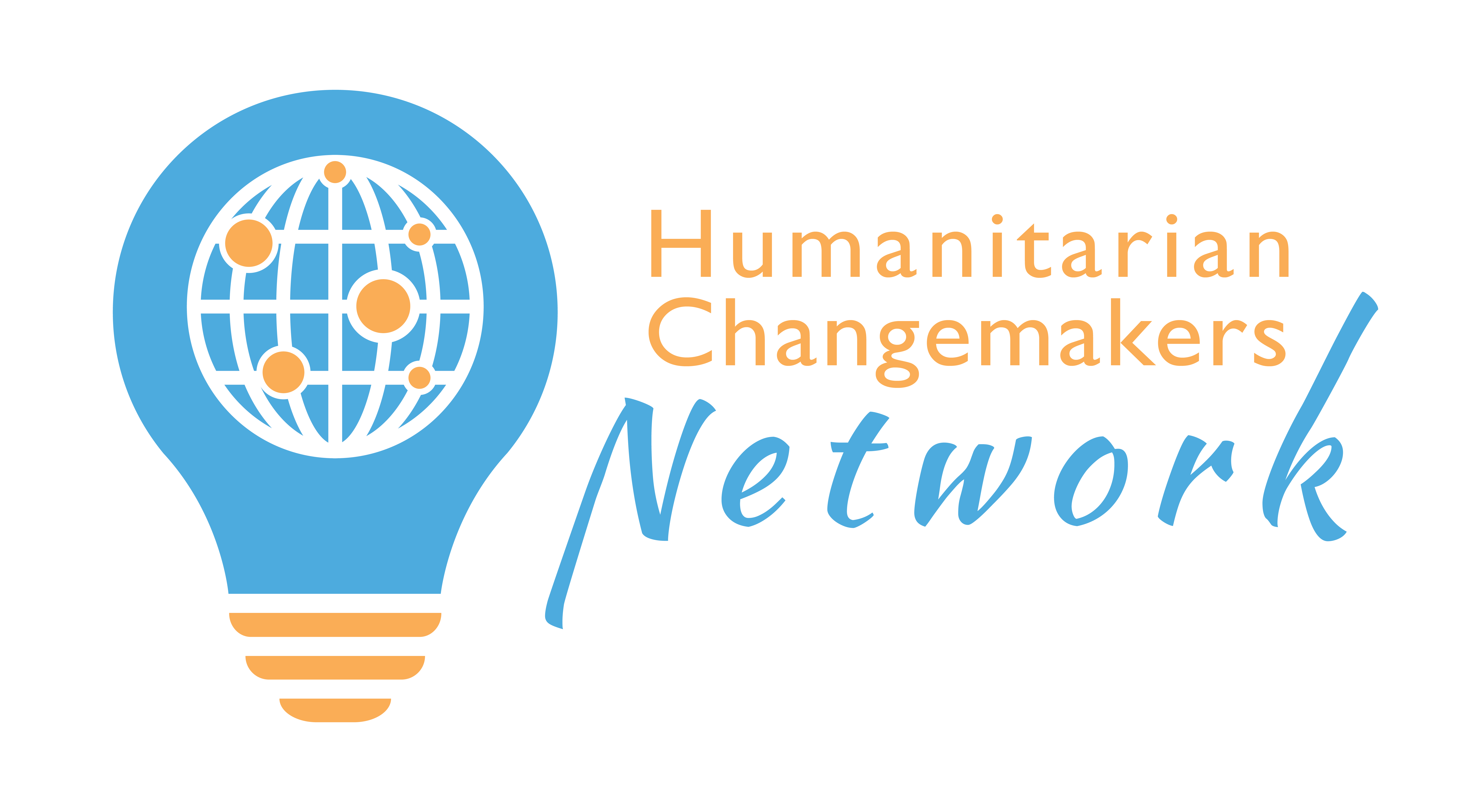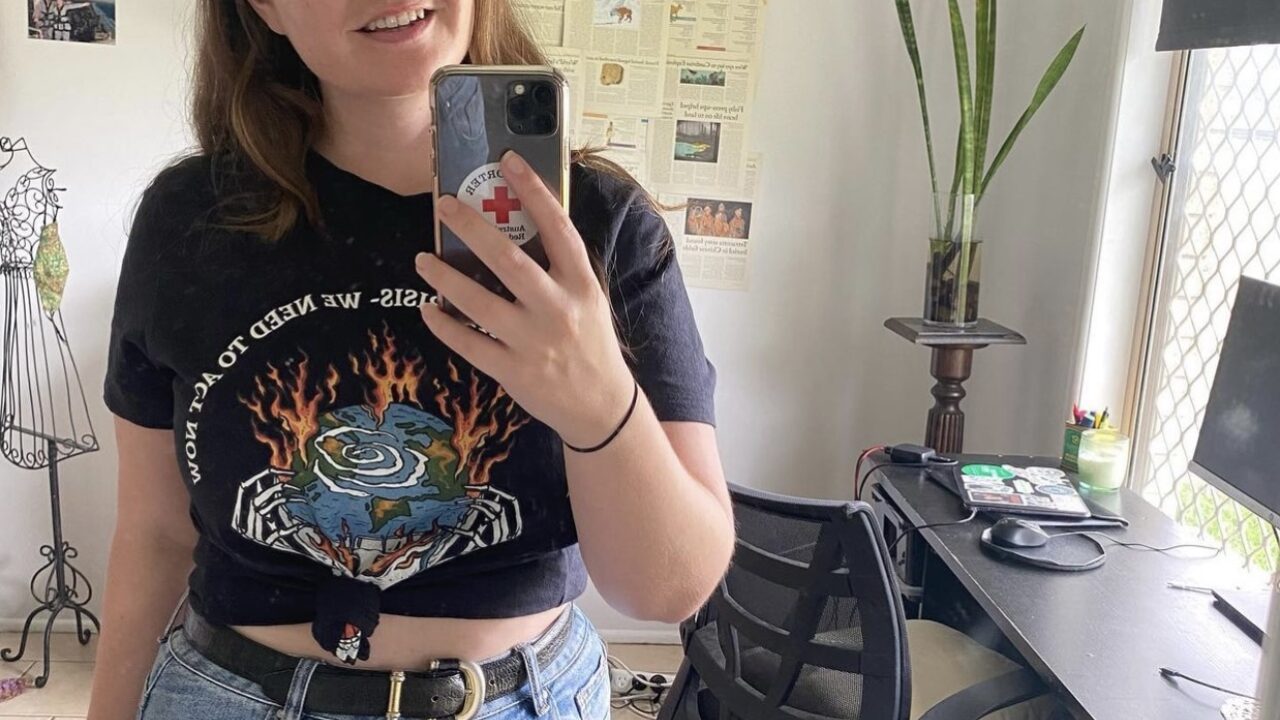We’re making “merch” more sustainable with Changemaker Co.
“One of the biggest challenges we face is funding,” says our founder Tiyana J, openly and candidly on her Instagram story. “I’ve been running HCN for about two years now, and funding our impact work is no doubt one of the biggest challenges.” As a social enterprise, we have previously relied school groups and other organisations purchasing our workshops and paying for speaking which during the covid pandemic, became more challenging. Now, as we enter a new financial year, we are expanding our enterprise with a revenue generating ecommerce brand that will fund our impact work here at HCN.
The online store, Changemaker Co. (short for Changemaker Collective, our official company name) has taken the the idea of selling merch and turned it into something truly unique. After dabbling in the world of print-on-demand, to offer our community statement clothing with designs and logos to spark attention and reflection, we se out on a mission to offer young changemakers a more sustainable option for our statement tees, and have launched a range of our top designs printed on upcycled, second-hand tees. We’ve sourced high quality second-hand clothing & support Aussie charity op-shops, digitally print our designs in Brisbane (Australia) onto each shirt using water-based inks, and then you let your clothes spread a message, and avoid contributing to overconsumption or waste by reusing pre-loved clothes!
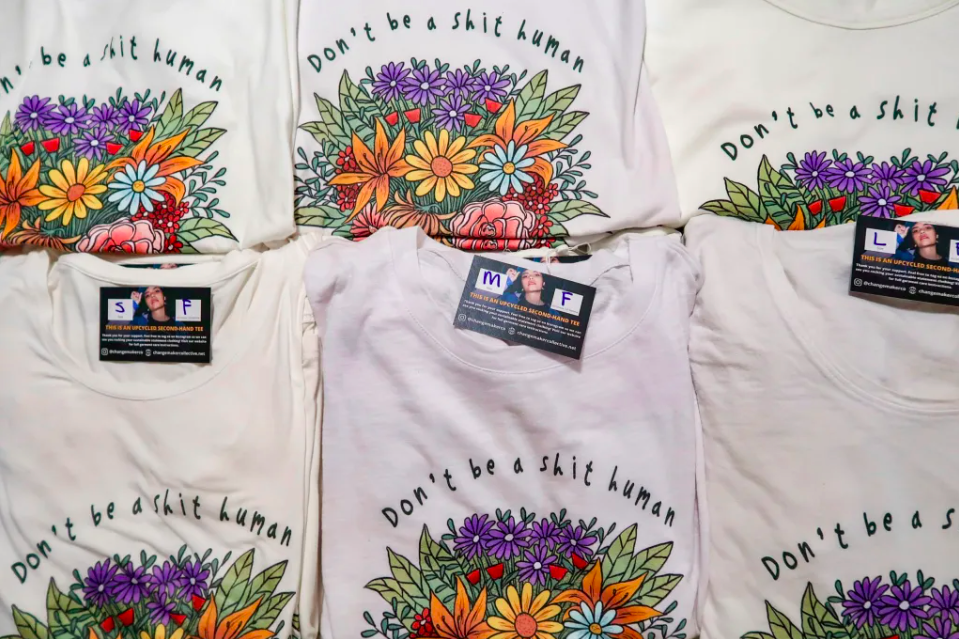
To learn more about creating a more sustainable supply chain, the charity store business model, and to learn about how we might contribute to a circular economy of fashion, we went behind the scenes and toured the Salvation Army’s Brisbane sorting warehouse, to find out what happens between people donating their goods, and those good being sold in one of their retail stores (or bought by us to upcycle!)
The Salvation Army retail stores operate for profit, and the revenue that these stores generates is then redistributed to fund their charity services (a bit like how Changemaker Co. operates for profit, and then funds the impact work of the Humanitarian Changemakers Network.) Most of the donations the receive are clothing or brick a brac. A lot of the china and crockery, which isn’t good enough to sell is donated to a local smash room business (you know— like in the movies where people walk into a room and smash plates and glasses.)
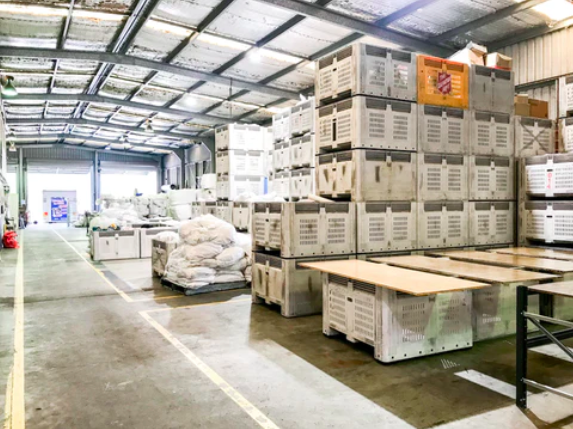
The books are sorted— those which aren’t in condition to be sold are recycled, and those which are good are allocated to stores within the regions. They can’t sell electrical goods, so any electronics that are donated have their parts separated and recycled— the warehouse aims to reduce as much waste as possible.
All of the donated clothing is sorted and any ‘B grade’ clothes that might be stained or damaged are separated and sent to a partner in Dubai, which either uses the clothes as is, or separates the material the create recycled textiles.
Those clothes which are good to sell, are sorted by style, and sent to the stores within the region that the warehouse serves. The stores price the items accordingly, and then they are tagged with a colour tag that indicates at what week of the cycle the item is in that specific store. As each item cycles through, the price may reduce, and if it isn’t sold in that store it is sent back to the warehouse, who will send it to a different store in the region— likely one in an area with a different socioeconomic demographic.
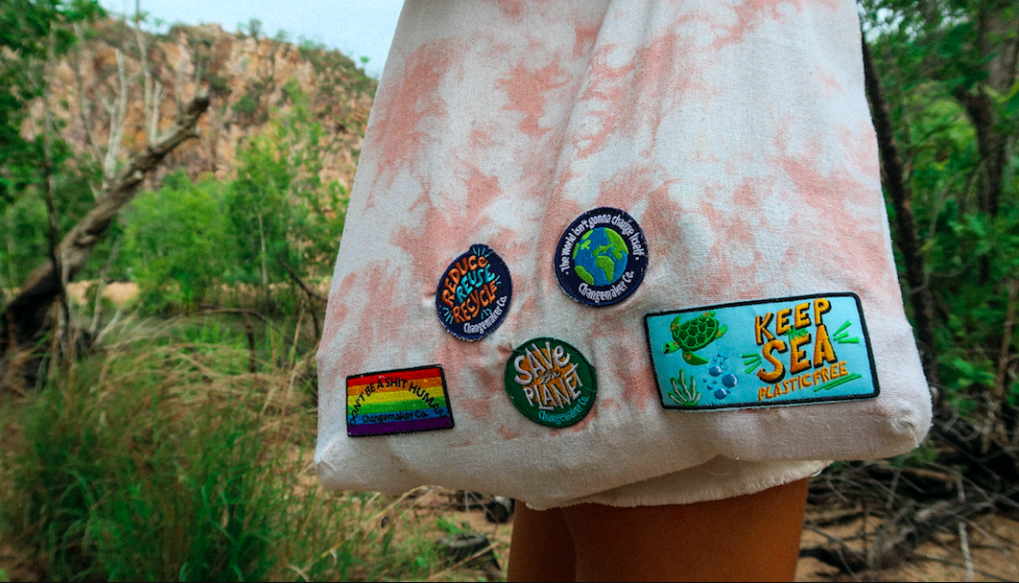
In order to encourage consumers to choose to upcycle, rather than buy completely new clothing, we’ve also added a range of patches to the Changemaker Co. store, so that you can turn your existing clothing into statement pieces, and spread a message for change!
